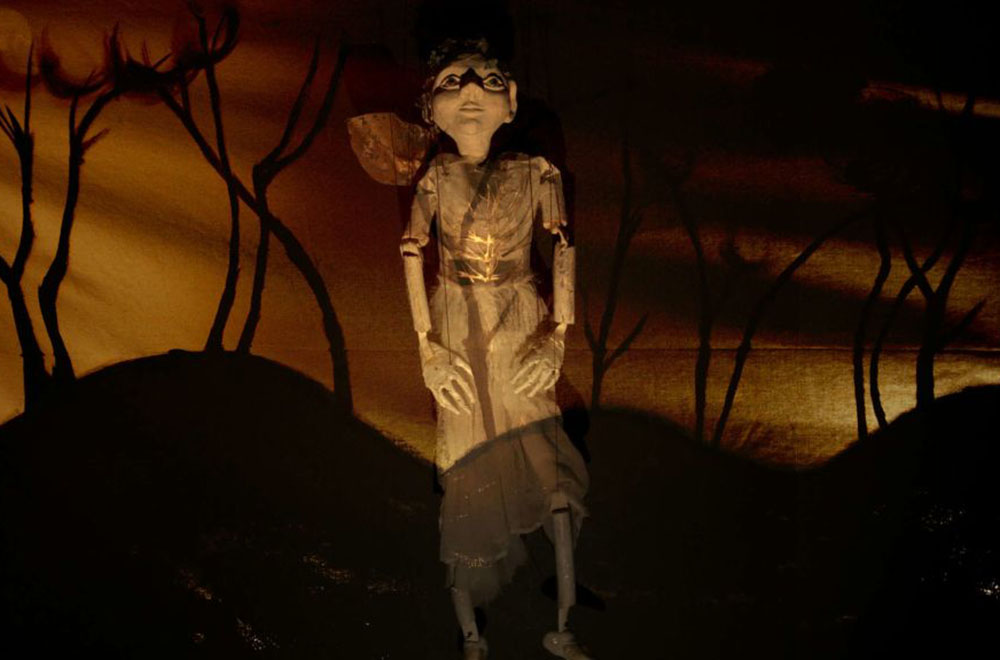The Ghost in the Machine: the works of Ross Lipman

CineLab’s Working Group in Art and Technology presents the two-day workshop “The Ghost in the Machine: the works of Ross Lipman”. The workshop will take place from September 21st to 22nd at the School of Social and Human Sciences (Tower A, Room 210), between 10 AM and 6 PM.
In his groundbreaking 1967 book, Arthur Koestler posited the human impulse towards self-destruction as ancient encodings that remain embedded in contemporary consciousness. As the world rapidly ambles on an apparent death march, this model is more relevant than ever — but there are also more optimistic readings of the phrase awaiting discovery. The impulse towards destruction can be countered by compassion and vision, and it’s these qualities of the human experience that will become more vital in the decades ahead.
Through the course of his work, filmmaker/archivist Ross Lipman activates the past in a compassionate re-invention of the present. Across a series of works ranging from film to digital video to performance essays, he employs a diverse range of archival materials in pursuit of their elusive essence, and simultaneously reinvigorates them in new interpretations. His subjects stretch from the works of Samuel Beckett to the history of ventriloquism, to the ways in which technology itself encodes meaning. This program encompasses an overview of his work as a filmmaker, essayist, and archivist with a specialization in moving image restoration.
Ross Lipman is an independent filmmaker, archivist, and essayist. His films have screened throughout the world and been collected by museums and institutions including the Academy Film Archive, Anthology Film Archives, Northeast Historic Film, the Oberhausen Kurzfilm Archive, Budapest’s Balazs Bela Studios, and Munich’s Sammlung Goetz. His feature documentary, NOTFILM, was named one of the 10 best films of the year by ARTFORUM, SLATE, and many others.
Formerly Senior Film Restorationist at the UCLA Film & Television Archive, his many restorations include Barbara Loden’s Wanda, Charles Burnett’s Killer of Sheep, Kent Mackenzie’ The Exiles, the Academy Award-winning documentary The Times of Harvey Milk, and works by Charlie Chaplin, Orson Welles, Shirley Clarke, Kenneth Anger, Lourdes Portillo, Robert Altman, and John Cassavetes. He was a 2008 recipient of Anthology Film Archives’ Preservation Honors, and is a three-time winner of the National Society of Film Critics’ Heritage Award. His writings on film history, technology, and aesthetics have been published in Artforum, Sight and Sound, and numerous academic books and journals.
His most recent restorations include David Schickele’s Bushman, Nancy Savoca’s Household Saints, Peter Kass and Ed Emshwiller’s Time of the Heathen, Nietzchka Keene’s The Juniper Tree featuring Björk, Richard Beymer’s The Innerview, and Eleanor Antin’s The Man Without a World. His recent film The Case of the Vanishing Gods premiered at the Locarno Film Festival in fall 2021 and was named to Jonathan Rosenbaum’s list of ten best films of 2022.
Comments on the work of Ross Lipman can be found here.
Comments on NOTFILM can be found here.
The Art and Technology working group focuses on exploring the relationships between artistic practices and the development of new technologies. Its main aim is to critically analyze, assess and discuss the ways the alliance between art and technology poses new challenges and offers new ways to respond to contemporary issues related to social, political, and economic paradigms, such as social justice, ecological sustainability, and economic development. The ongoing seminar, part of the research project, “AI, Art, and Archives”, exploring creative modes to activate moving-image archives, modes and methods with artificial intelligence, explorations and problematizations of these processes and outcomes, and specifically investigations of the hauntological and the uncanny within this. The seminar will invite over the course of the research project researchers, creators, and educators, to present different perspectives and methodologies towards the intersections and relations of these three areas.
For questions, please contact Maile Colbert at mailecolbert@fcsh.unl.pt.
This project was supported, in part, by a Foundation for Contemporary Arts Emergency Grant.
Event supported by the Foundation for Science and Technology (Fundação para a Ciência e para a Tecnologia) of the Portuguese Ministry of Education and Science under the project UIDB/00183/2020.

